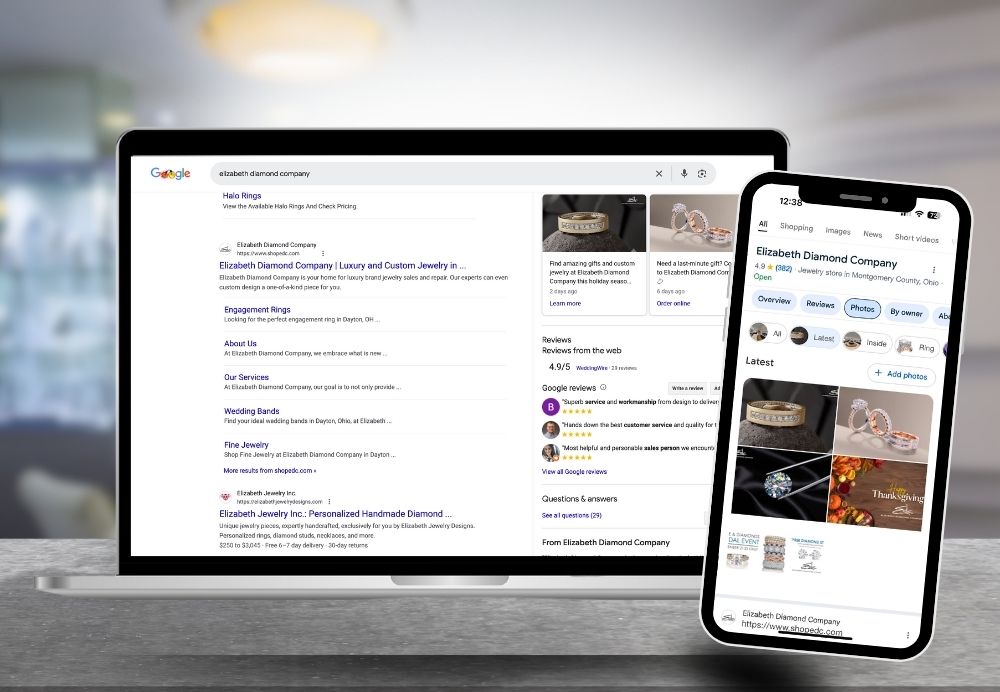In today’s digital age, small businesses must go beyond traditional advertising methods like brochures, print ads, and outdoor signs to attract customers. While these methods can generate some local interest, they often fall short of tapping into the vast potential of online audiences. Digital marketing provides an opportunity to reach a larger audience, engage potential customers, and ultimately drive more sales.
Table of Contents
ToggleAccording to research by Visual Objects, 76% of consumers search for a business online before visiting in person, and 45% are more likely to visit a store after finding a strong online presence. This demonstrates why digital marketing is essential for small businesses looking to grow. Let’s explore how digital marketing can effectively drive sales.
Understanding the Benefits of Digital Marketing
Digital marketing enables small businesses to compete with larger companies by providing scalable and cost-effective ways to reach potential customers. Some of the key benefits include:
Increased Engagement with Customers: Digital marketing allows businesses to interact directly with their audience, learning about their preferences and improving services based on feedback.
Expanding Reach Beyond Local Markets: Unlike traditional advertising, digital marketing eliminates geographical limitations, allowing businesses to reach customers anywhere.
Hyper-Personalization and Targeting: With tools like social media ads and email marketing, businesses can deliver the right message to the right audience at the right time.
Cost-Effective Marketing: Compared to traditional advertising, digital marketing provides more affordable options with higher returns on investment.
Real-Time Campaign Monitoring: Businesses can track and analyze their marketing efforts to adjust strategies based on performance metrics.
Effective Digital Marketing Strategies for Small Businesses
1. Conducting Competitor Research
Understanding what competitors are doing can provide valuable insights into successful marketing strategies. Researching competitors’ digital efforts helps businesses learn what works and what doesn’t. Some key aspects to analyze include their content strategies, engagement levels, platforms used, and any partnerships with influencers or brand advocates. Tools like SEMrush, Ahrefs, and Moz can assist in gathering competitor insights.
2. Leveraging SEO for Online Visibility
Search Engine Optimization (SEO) ensures that a business ranks well on search engines like Google. A well-optimized website will attract organic traffic from users actively searching for related products or services.
Small businesses should focus on:
Conducting keyword research to identify relevant search terms.
Optimizing website content, titles, and meta descriptions.
Using local SEO strategies to rank in geographic-specific searches.
Setting up and optimizing a Google Business Profile to enhance visibility in local searches.
SEO is a long-term strategy, but it significantly impacts how discoverable a business is to potential customers.
3. Engaging on Social Media
Social media is one of the most powerful tools for businesses to connect with their audience. With over 5 billion users worldwide, platforms like Facebook, Instagram, LinkedIn, and TikTok provide opportunities for brand exposure and customer interaction.
To make social media marketing effective, businesses should:

Choose the right platforms based on their target audience.
Share a mix of promotional, educational, and user-generated content.
Encourage customer reviews and engagement through polls, contests, and interactive posts.
Respond to customer inquiries promptly to build trust and credibility.
4. Targeting Existing Customers with Email Marketing
Email marketing remains a crucial strategy for small businesses. Retaining existing customers is often more cost-effective than acquiring new ones.
Businesses should:
Segment email lists based on customer behavior and preferences.
Send personalized offers, updates, and promotions to maintain engagement.
Automate email workflows to nurture leads and encourage repeat purchases.
By maintaining regular communication, businesses can enhance customer loyalty and increase repeat sales.
5. Partnering with Influencers
Influencer marketing has become an essential component of digital marketing. Even small businesses can benefit from working with local influencers who have a loyal following. The key is selecting influencers whose audience aligns with the business’s target market.
Influencers can help promote products through:
Sponsored posts and collaborations.
Giveaways and product reviews.
Brand ambassador partnerships.
Since influencers have built trust with their audience, their recommendations often lead to increased brand awareness and conversions.

6. Maximizing Ad Spend with Digital Advertising
Online advertising, such as Google Ads and social media ads, allows businesses to reach their target audience efficiently. These platforms provide precise targeting options, ensuring businesses only spend money on people who are likely to be interested in their products.

To maximize ad spend:
Start with small campaigns and test different ad creatives.
Use retargeting ads to bring back visitors who didn’t convert initially.
Analyze performance metrics to adjust strategies for better ROI.
Conclusion
Digital marketing is a game-changer for small businesses looking to drive sales and build long-term customer relationships. By leveraging SEO, social media, influencer partnerships, and email marketing, businesses can expand their reach and improve conversions. Embracing digital strategies ensures that small businesses remain competitive in an increasingly online-driven marketplace. For expert guidance in digital marketing, contact Media Caffeine to take your business to the next level.
FAQs About Digital Marketing and Sales Growth
How does digital marketing increase sales?
Digital marketing increases sales by reaching more potential customers, engaging them with personalized content, and guiding them through the buying journey with targeted messaging and promotions.
What is the most cost-effective digital marketing strategy for small businesses?
SEO and social media marketing are among the most cost-effective strategies since they offer long-term benefits with minimal upfront investment.
How can small businesses compete with larger companies using digital marketing?
Small businesses can compete by using niche marketing, local SEO, and personalized customer experiences that larger companies may struggle to provide.
Which social media platform is best for small businesses?
The best platform depends on the target audience. Facebook and Instagram are great for visual and interactive content, LinkedIn works well for B2B marketing, and TikTok is ideal for engaging younger audiences.
How can businesses measure the success of digital marketing efforts?
Businesses should track website traffic, conversion rates, social media engagement, and customer retention rates to measure the effectiveness of their digital marketing strategies.
Testimonials
Let’s Talk!







